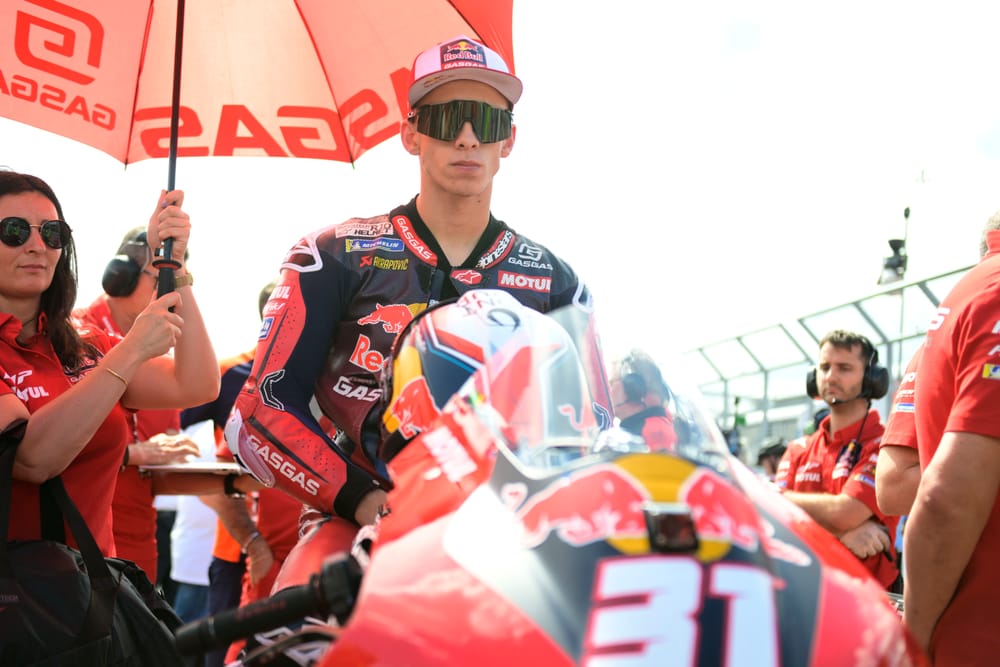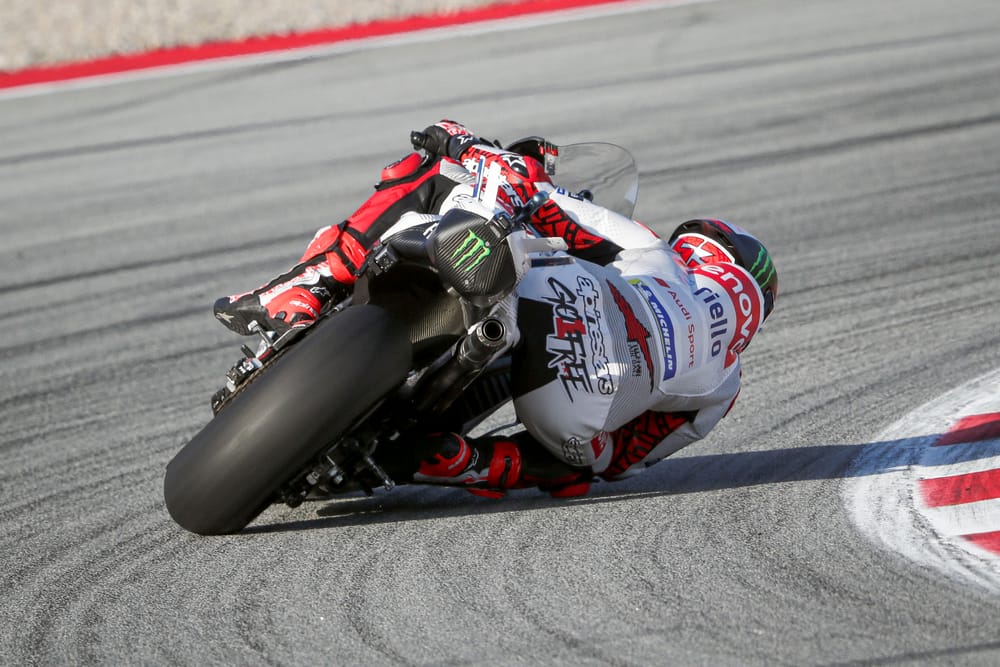A six out of 10 rating isn't meant to convey greatness.
Mission: Impossible II, The Fast and the Furious Tokyo Drift, Anyone But You - there are three movies for you, all collectively ranked 6/10 or thereabout by the users of the internet's pre-eminent movie database IMDb. Serviceable but hardly groundbreaking, won't be anyone's favourite film.
So what about 6/10 MotoGP seasons? It's much harder to get a list to hand, but there's one candidate to be inducted - Pedro Acosta's 2024 MotoGP season... at least according to the pre-eminent Pedro Acosta expert, Pedro Acosta.
"Six. Six is quite OK," he answered when asked to rank his season.
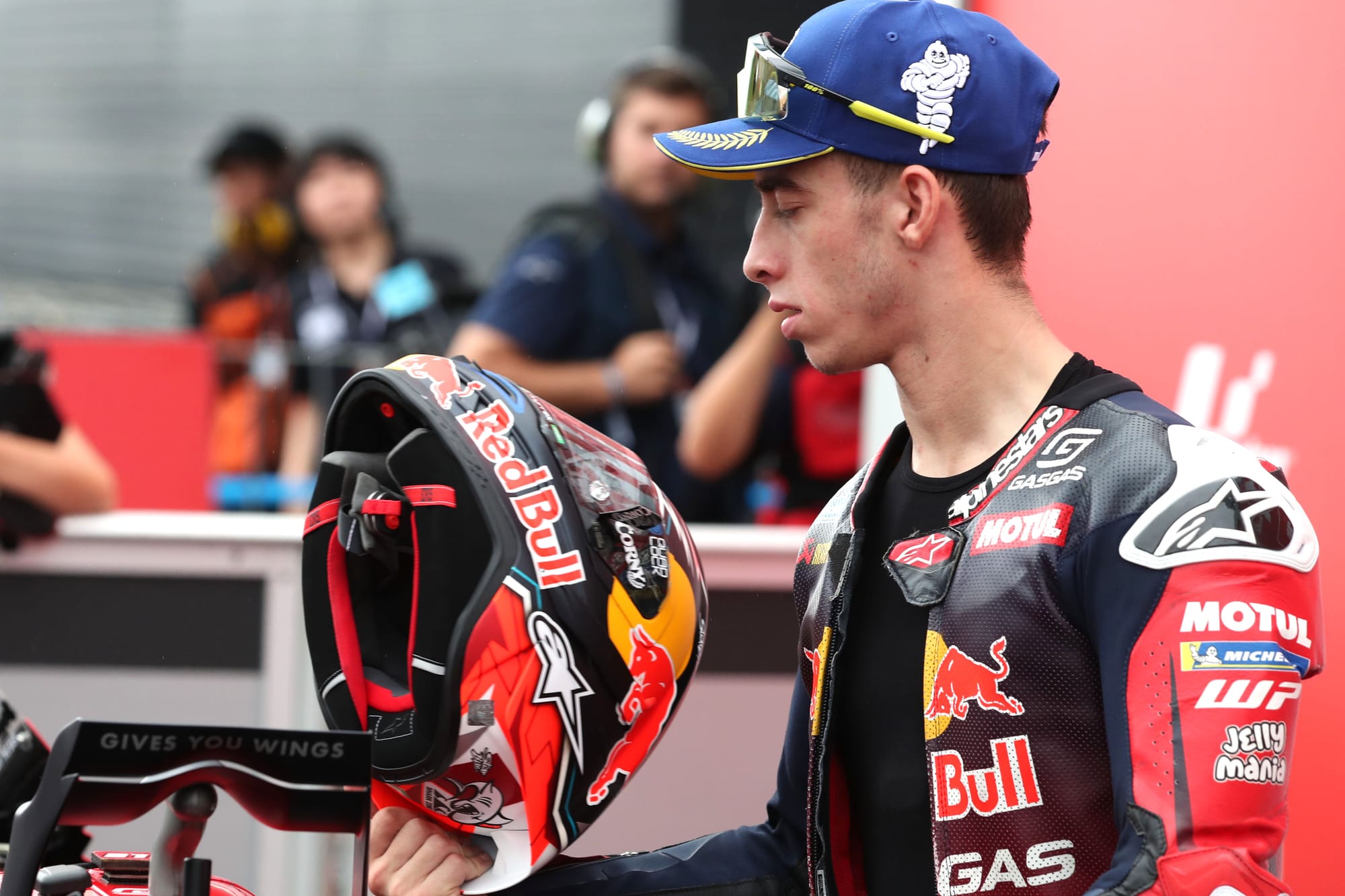
"Inside, putting everything together, all the mistakes that I made, all the points that I put in the bin, all the stupid crashes that I was having, all the things that I needed to try - in the last couple of races I was trying things, and then in the race I was racing with other things, and I was not really having time to work on the weekend - I will put a six. Not bad."
Six is actually on the high side - at other moments during the season Acosta offered up 5/10 and 4.5/10. But, not to cherry-pick those numbers, they are all meant to convey the same sentiment - could've been better, could've been worse.
I would not rank Pedro Acosta's season a 6/10 myself - the mark should be higher. The conventional wisdom is that it was a campaign certainly better than 'mediocre', better than 'above average'. But the way Acosta himself sees his 2024 is arguably more informative than what anyone else can offer up.
"Many mistakes, many difficult moments - on the other side many good moments, fighting for victories, improving a lot, understanding how MotoGP is. For this side, I'm more happy than sad - but also sad."
No great outlier
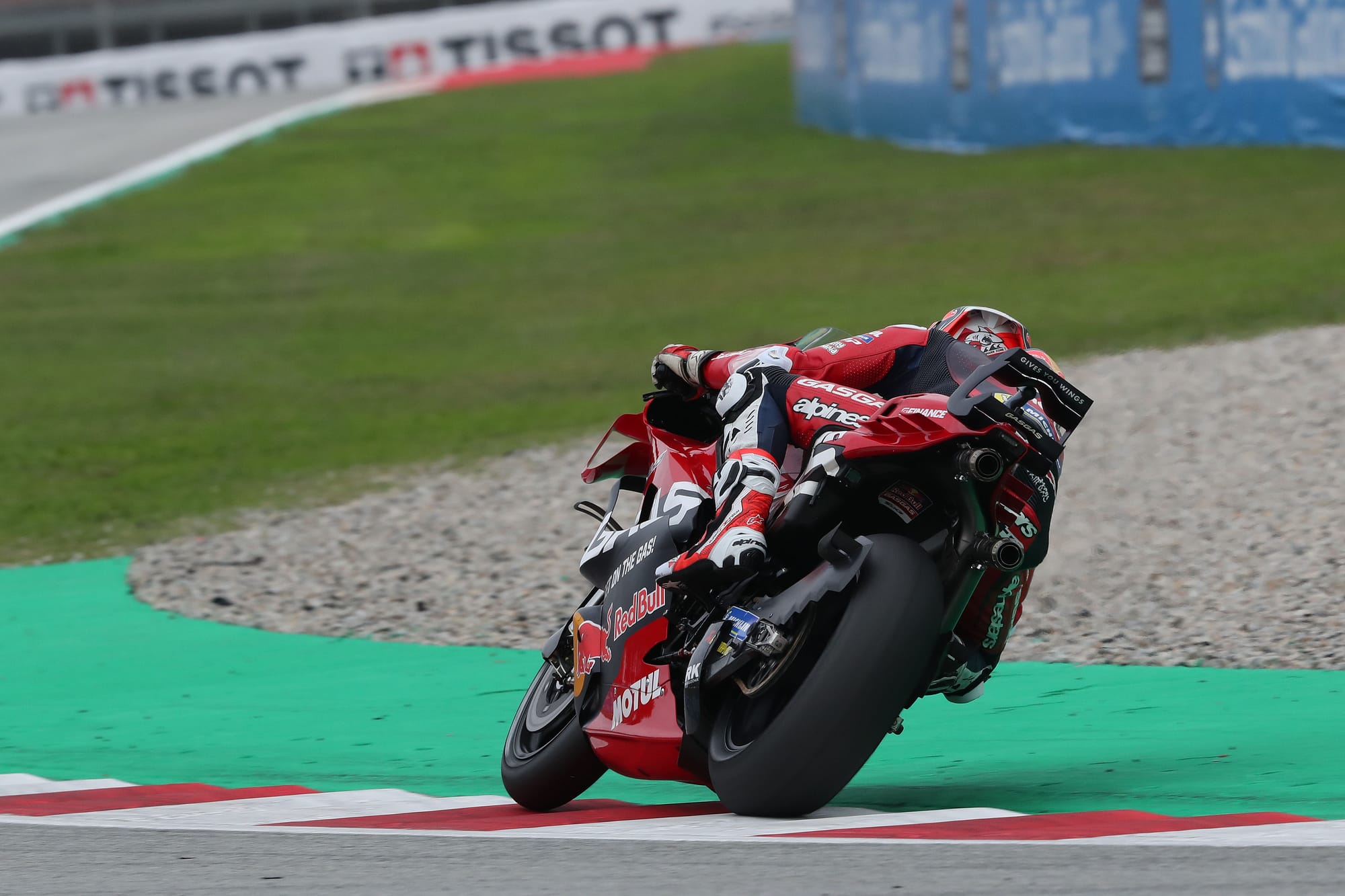
In winning Moto3 and Moto2 titles, Acosta laid his path to being MotoGP's most hotly-anticipated rookie since Marc Marquez - who had the rules rewritten for him so that he could debut on a Repsol Honda in 2013 at a time when rookies were supposed to go onto satellite bikes first, then rewrote the history books by winning the title at his first attempt.
Statistically, there is no comparison between the two. Marquez was winning immediately and winning a lot - Acosta's best chance at a win went begging when he threw it down the road in the Motegi sprint while under relatively little pressure.
A cursory study of the points accrued suggests his reference point isn't Marquez but the best rookies since Marquez.
Most productive rookie seasons since Marquez's 2013 debut
* by share of points scored from maximum available
Marc Marquez (2013) - 74.22%
Fabio Quartararo (2019) - 40.42%
Johann Zarco (2017) - 38.67%
Pedro Acosta (2024, GPs only) - 31.79%
Jorge Martin (2020) - 31.71%
Pol Espargaro (2014) - 30.22%
Pedro Acosta (2024, all races) - 30.07%
Andrea Iannone (2013) - 29.00%
Jonas Folger (2017) - 25.85%
Brad Binder (2020) - 24.86%
Grands prix offer more of an opportunity than sprints for points-scoring in a conventional rookie season - due to the points going down to 15th rather than ninth - but even changing the calculation to Sunday-only leaves Acosta well behind two Yamaha prodigies Fabio Quartararo and Johann Zarco, with Marquez not even in the same galaxy.
Combine that with a table-topping crash tally - even if it's inextricably linked to the points total - and you get the contours of a 6/10 season.
Or is it?
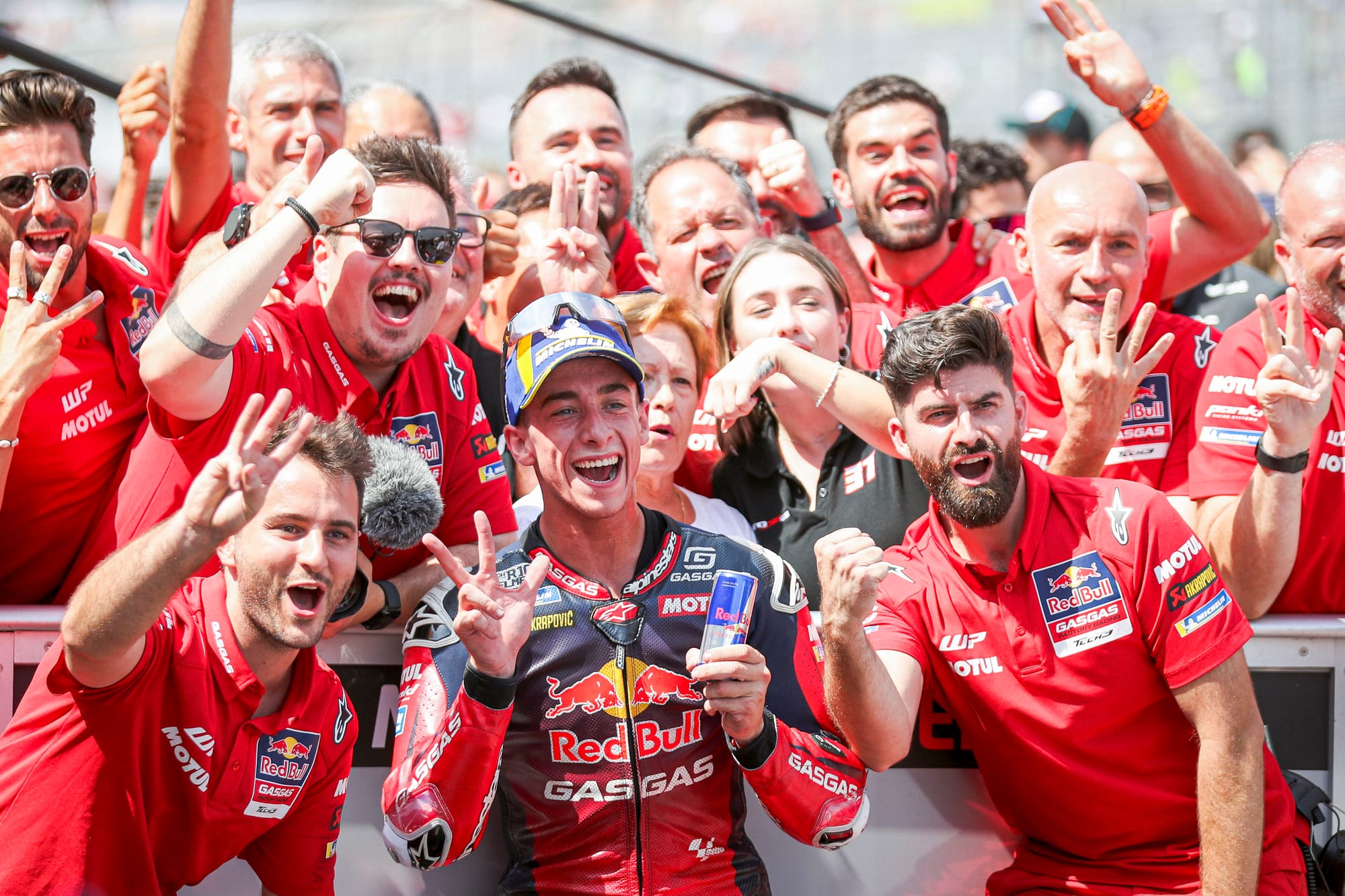
But points are not a good metric. For starters, putting up double-digit scores these days to the MotoGP elite of now is, by and large, much harder than it was in 2013.
This year's champion Jorge Martin, even as part of a historically-dominant Ducati set-up, only bagged 65% of the available points, compared to 74% for Marquez in 2013 - and even though he won the title, that was arguably the future legend's least purely-competitive premier-class season until his 2020 arm break.
Acosta was contending against a much deeper pool of teams and riders - year-old bikes for satellite teams were the norm even a handful of years ago but are completely out of vogue now - while also fighting for scraps left behind by a historically strong Ducati factory.
He was not the most efficient in maximising those scraps, and that is relevant, but it is patently not what he's there to do for KTM. And if you take laps spent in podium positions as a relevant metric instead, as something signalling the upper boundary of potential (especially on a bike that just didn't have podium pace for the vast majority of the season), Acosta's 68 across all the grand prix races nearly doubles the tally of the next-best KTM rider.
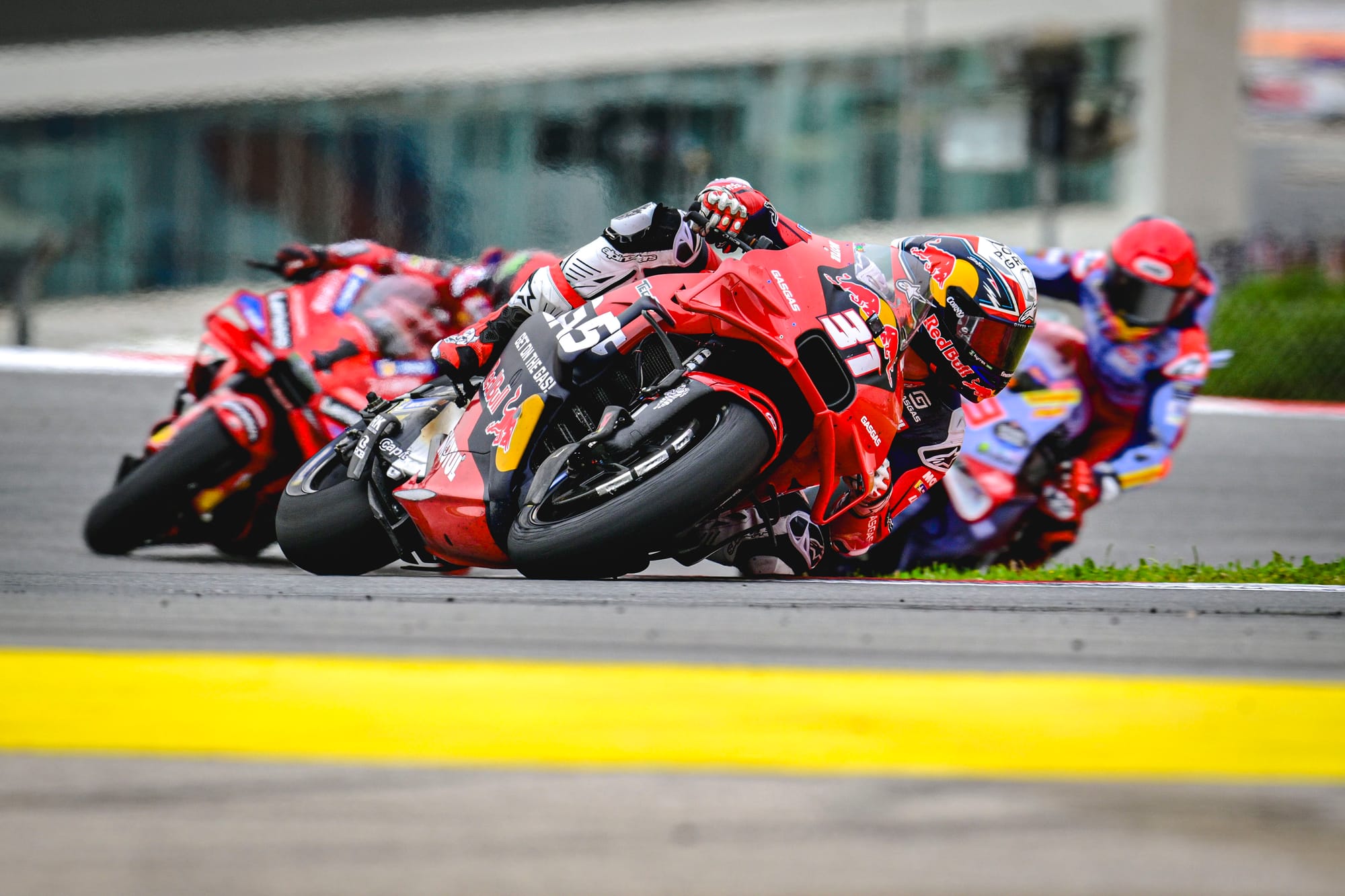
As Ducati grew more and more potent through honing the GP24 and having Marc Marquez more and more in tune with the GP23, the sight of it being challenged by anybody became a ludicrously rare one - but when it did happen, it was more often than not thanks to Pedro Acosta.
Add in a qualifying whitewash of Tech3 team-mate Augusto Fernandez - who was actually ahead of Acosta in their sole previous season as team-mates back in 2022 in Moto2 - and the fact it was the only such whitewash in the field, and the baked-in rookie unfriendliness of the sprint format that effectively sends riders into 'Q0' after just an hour of practice, and you get a pretty special season.
KTM knew it right away - it clearly did not take it very long at all to sign off on an Acosta promotion into the works team for 2025.
Boundless ambition
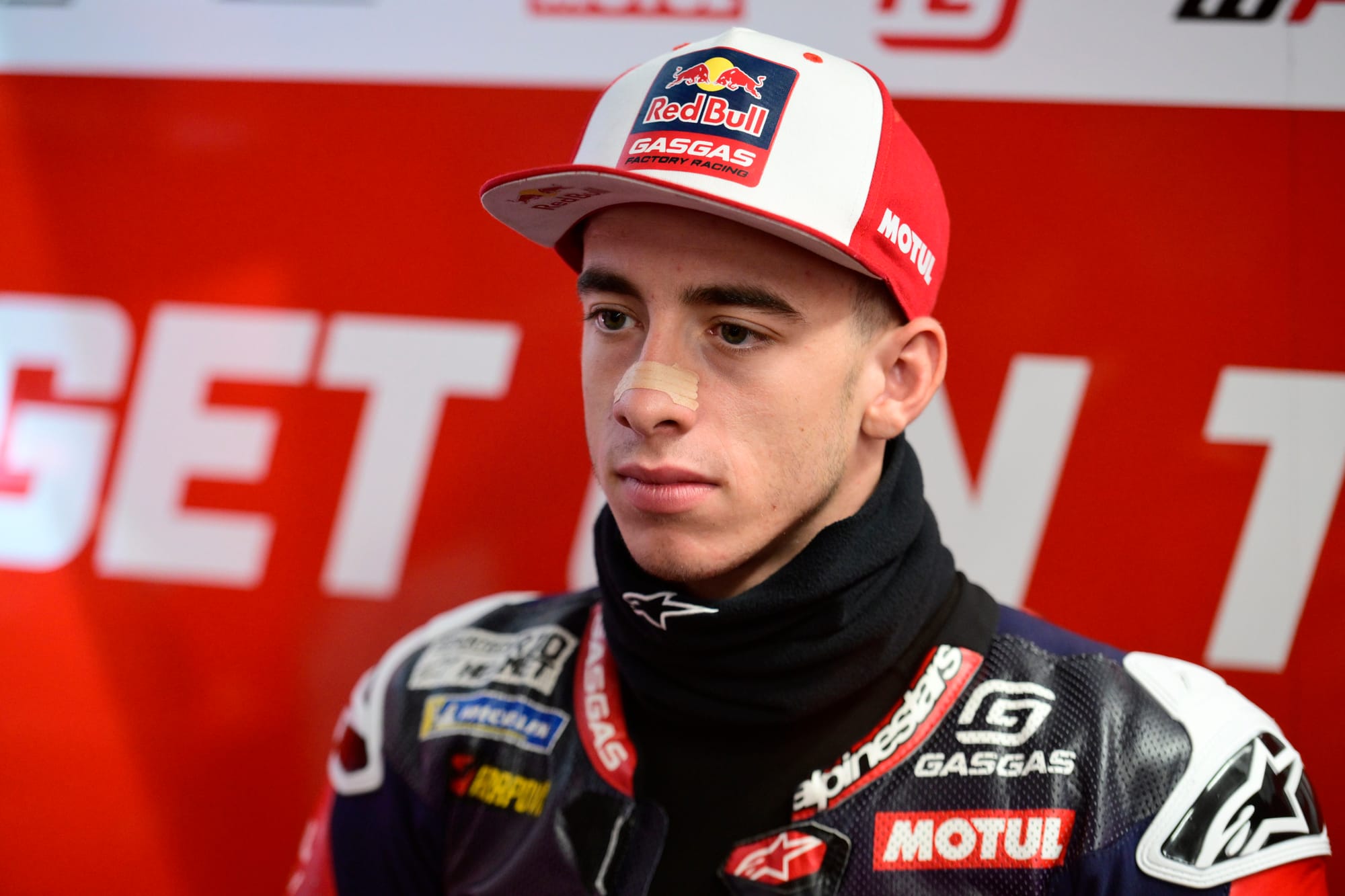
Acosta knows all of that. It's just a question of how he sees it.
After all, it is undoubtedly a positive to have established yourself as a MotoGP star right away and secured a factory promotion at the first attempt - but what if you just always took that for granted? What if that's just the absolute bare minimum? What if, in not winning in your first season, you're already behind schedule?
Acosta didn't say any of those things during his first season, but both the way he spoke and the way he raced often sent that very message. Big risks, big points thrown away. No time to wait, no time to ease yourself in.
Moto3 had bowed to him in one season - quicker than that, really. He kind of 'completed' it in two starts, winning from pitlane in just his second-ever grand prix race.
Moto2 was a tougher nut to crack, but it too was conquered at a reasonable pace.
When he brought his almost cartoonishly boisterous, larger-than-life personality to the main class, it almost felt par for the course. After all, how could Acosta be any different, when virtually every day he has spent in the grand prix paddock he has done as one of its best and most important names?
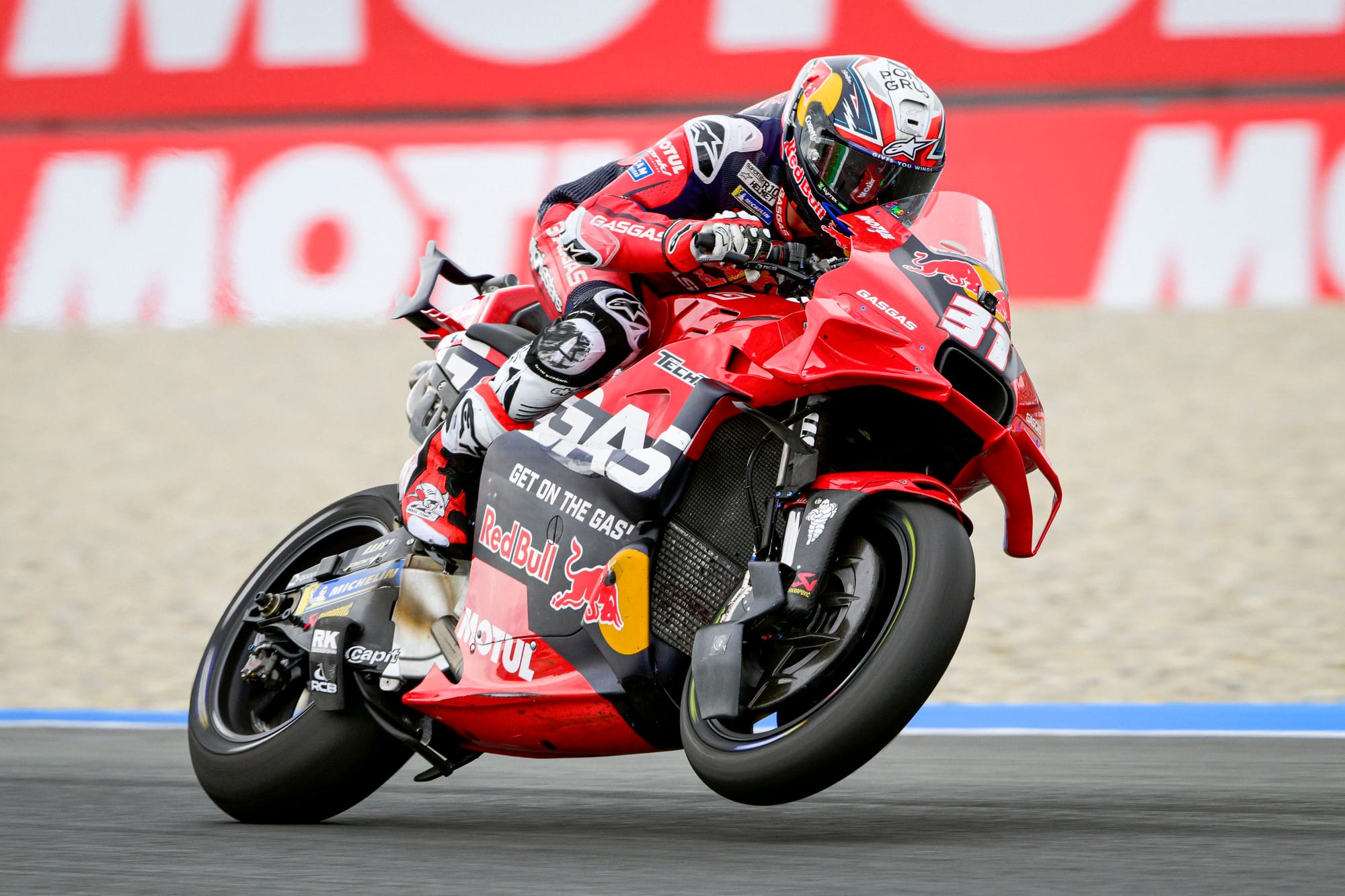
Even early in his rookie MotoGP season, he spoke of the step up in profile that usually comes with a premier-class promotion not being relevant to him because he was already extremely prominent and in-the-spotlight as a lower-class rider.
The youngest (19 on his debut) MotoGP rider? So what - there is no time to waste. Widely recognised as a future premier-class champion? So what - you can't fill a trophy cabinet with recognition.
So why 6/10? Well, we can only really guess, but the best guess - for my money - is this: 6/10 because every moment spent not as the consensus best rider on the grid is intolerable, and because the goal isn't a premier-class world championship but a truckload of them.
On the evidence of 2024, it is an attainable goal. KTM should love that, and love Acosta's acceptance that he needs to improve - but it should be mindful, because if that improvement rate outpaces that of KTM's often-promising but often-stuttering bike development programme, I am willing to bet it will be incompatible with Acosta's ambition.


